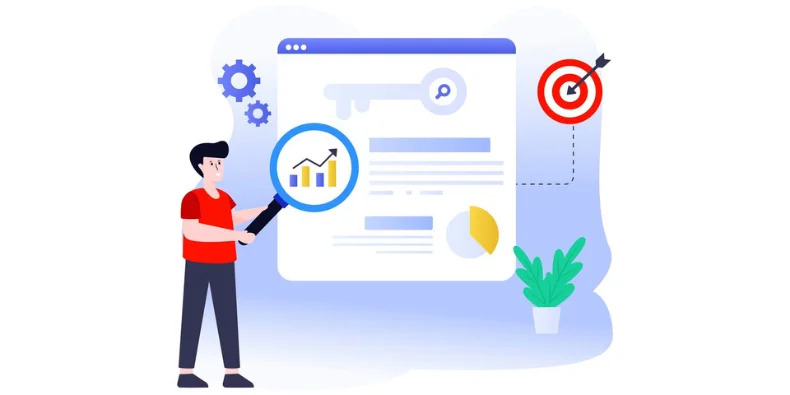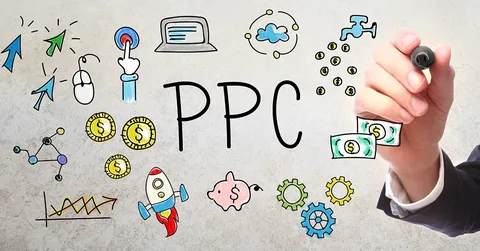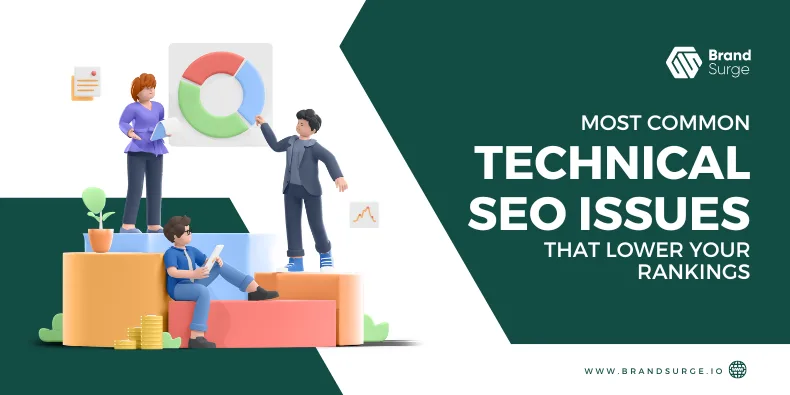In the vast landscape of digital marketing, effective search engine optimization (SEO) is crucial for achieving online success. One of the key strategies that marketers employ is the use of keywords, which act as the bridge between users and search engines.
While most marketers are familiar with short tail keywords, there’s another type of keyword that holds immense value: long tail keywords.
In this blog, we will explore the common benefits of using long tail keywords and why they should be an essential part of your SEO and digital marketing efforts.
What is the Common Benefit of Long Tail Keywords?
Before diving into their benefits, let’s define long tail keywords.
Long tail keywords are specific, highly targeted phrases that consist of three or more words. Unlike short tail keywords, which are broader and more generic, long tail keywords are more specific and reflect users’ intent with higher precision.
For example, instead of targeting the keyword “shoes,” a long tail keyword could be “women’s running shoes with arch support.”
Let’s see some benefits of using long tail keywords and how they can help in getting the best and efficient results:
Enhanced Relevance and Targeting
One of the primary benefits of long tail keywords is their ability to enhance relevance and targeting. By using more specific phrases, you can directly align your content with your target audience’s exact needs and preferences.
Long tail keywords allow you to capture users who are searching for something specific, increasing the likelihood of attracting qualified traffic to your website.
This enhanced targeting also helps in narrowing down the competition, as fewer businesses may be targeting those exact phrases, giving you a competitive edge.
Higher Conversion Rates
When users search using long tail keywords, it indicates that they have a specific intent or need. This makes them more likely to convert into customers.
Long tail keywords enable you to cater to users who are further down the sales funnel and are actively looking for a solution or product. By providing content that addresses their specific needs, you can increase the chances of converting them into paying customers.
The higher conversion rates associated with long tail keywords can significantly impact your bottom line and maximize your ROI.
Improved Organic Search Rankings
Long tail keywords often have lower search volumes compared to short tail keywords. However, they also have less competition. This means that by targeting long tail keywords, you have a better chance of ranking higher in organic search results.
With less competition, you can optimize your content around these specific phrases and increase your visibility in search engine results pages (SERPs).
Improved organic rankings not only drive more targeted traffic to your website but also establish your brand as a credible and authoritative source in your niche.
Cost-Effective Advertising
Long tail keywords can also be beneficial for your paid advertising campaigns. Since they are more specific and have lower competition, bidding on long tail keywords in pay-per-click (PPC) campaigns can be more cost-effective compared to bidding on generic short tail keywords.
With lower competition, the cost per click (CPC) for long tail keywords is often lower, allowing you to stretch your advertising budget further and achieve better results.
Long tail keywords play a crucial role in improving your SEO efforts and driving targeted traffic to your website. Their ability to enhance relevance, increase conversion rates, improve organic search rankings, and provide cost-effective advertising opportunities makes them an invaluable asset for any digital marketer.
By incorporating long tail keywords into your content strategy, you can connect with your audience on a deeper level, provide valuable solutions, and ultimately achieve your digital marketing goals.
Start leveraging the power of long tail keywords today and experience the common benefits they bring to your online presence.
Long Tail Keywords vs Short Tail
Long tail keywords vs short tail keywords are differ in terms of length, specificity, search volume, competition, and user intent.
Long Tail Keywords:
Long tail keywords are longer, more specific phrases that typically consist of three or more words. They are highly targeted and reflect users’ specific search queries or intentions.
Examples of long tail keywords include “Best Local SEO services in New York” or “affordable organic dog food for small breeds.”
Here are the characteristics that set long tail keywords apart:
- Length and Specificity: Long tail keywords are more descriptive and specific, providing detailed information about the user’s intent.
- Search Volume: Long tail keywords generally have lower search volumes compared to short tail keywords. However, they often have higher conversion rates as they target users who are further down the sales funnel and have a specific need.
- Competition: Long tail keywords have less competition because they are highly targeted and specific. This gives you a better chance of ranking higher in search results.
- User Intent: Long tail keywords indicate a higher level of user intent. Users searching with long tail keywords are often looking for specific products, services, or solutions, indicating a higher likelihood of conversion.
Short Tail Keywords:
Short tail keywords, also known as broad keywords, are shorter and more generic phrases. They typically consist of one or two words.
Examples of short tail keywords include “SEO services” or “dog food.” Here are the key characteristics of short tail keywords:
- Length and Specificity: Short tail keywords are concise and general, lacking specific details about the user’s intent.
- Search Volume: Short tail keywords generally have higher search volumes due to their broader nature. However, they may also have lower conversion rates as they attract a wider audience with varying intents.
- Competition: Short tail keywords have high competition because they are broader and more general, making it challenging to rank higher in search results.
- User Intent: Short tail keywords can have varying levels of user intent. Users searching with short tail keywords may be in the early stages of research or exploration, requiring further guidance to meet their specific needs.
Choosing Between Long Tail Keywords and Short Tail Keywords
The choice between long tail keywords and short tail keywords depends on your specific goals and target audience.
Here are some factors to consider that can help you make the right decision:
Targeting: Long tail keywords are ideal for targeting specific audiences with higher intent, while short tail keywords are better for broader visibility and brand awareness.
Competition: Long tail keywords offer opportunities to compete in less crowded spaces, while short tail keywords require a more competitive approach.
Conversion Rates: Long tail keywords generally yield higher conversion rates due to their specificity, whereas short tail keywords may require additional steps to convert users.
Search Volume: Short tail keywords attract higher search volumes, but long tail keywords can still generate valuable traffic and lead to better-quality leads.
In conclusion, both long tail keywords and short tail keywords have their advantages and uses in digital marketing. It’s important to analyze your goals, target audience, and competition to determine the best keyword strategy for your business.
Incorporating a combination of both types can provide a well-rounded approach to optimize your website and attract the right audience to drive conversions.
Looking to get the professional SEO and Digital Marketing Services? Get in touch with our experts at Brand Surge now and get a free SEO audit to better understand your website and a personalized SEO strategy. We help you attract your audience and convert them into your loyal customers!
FAQs
Long tail keywords are more specific and consist of three or more words, whereas short tail keywords are broader and more generic. Long tail keywords allow for better targeting and capture users with specific needs, while short tail keywords target a broader audience.
Yes, long tail keywords often lead to higher conversion rates. Users searching with long tail keywords have a specific intent or need, making them more likely to convert into customers when they find relevant content or solutions.
Yes, targeting long tail keywords can improve your organic search rankings. Best Local SEO services can help you target your audience with long tail keywords easily. With less competition, it’s easier to optimize your content and rank higher in search engine results pages (SERPs), driving more organic traffic to your website.

















